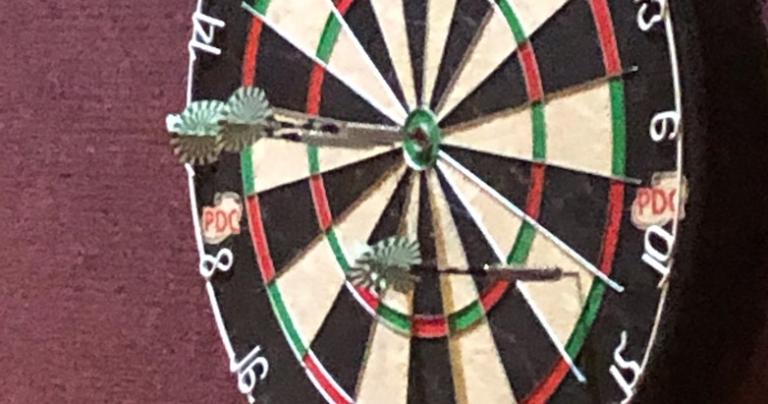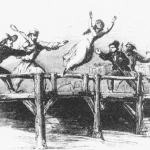The God of the Bible anointed Cyrus, heard the cry of the tyrant Nebuchadnezzar, sent a prophet to save a Phoenician woman in a drought, was worshipped by magi, and healed Romans and other pagans.
Are atheist prayers answered as often as Christian prayers?
What if only two nations existed, one of Atheists (only) and the other a nation of Christians (only). Would the cure rate for disease be higher in either nation?*
Since I am a Christian, I might be expected to answer: the Christian surely. After all, don’t Christians believe God answers prayer, that answers to prayer are based on faith, and that faith must be genuine? How could any non-Christian prayer be heard? If Christianity were true, wouldn’t this be a testable experiment?
No.
If God exists, as God is described in the Bible, there is no way to know if Christians would experience more miracles (of a sort) than non-Christians.
 Prayer is not transactional, a way to get what we want. Prayer is relational. Love and power games, the art of the marital deal, do not go together. Ovid wrote, I am reminded by a college student, a horrible manual on love that is all about getting what he wants. Pretend a relationship, be nice, do what must be done, says Ovid, and “win.” Christianity says that a good relationship is built on consent and mutual flourishing.
Prayer is not transactional, a way to get what we want. Prayer is relational. Love and power games, the art of the marital deal, do not go together. Ovid wrote, I am reminded by a college student, a horrible manual on love that is all about getting what he wants. Pretend a relationship, be nice, do what must be done, says Ovid, and “win.” Christianity says that a good relationship is built on consent and mutual flourishing.
Recall as well that God, if God exists, has set up a cosmos that operates on laws God designed. The cosmos is not whimsical. God wishes it to be good and mostly good when it comes to nature means sensible, rational, and predictable. Yet God also made free will beings, at least men and angels, and the choices they make must be balanced to achieve the best possible outcome. There are finite variables and one best: God brings us to the best possible world given all the bad choices, misuse of free will, and brokenness.
Miracles cluster in the Bible: creation, Exodus, Conquest, Prophets, Jesus, Apostles. Periods with multiple miracles were uncommon (as we would expect). The most uncommon time in human history was when Jesus was on Earth: God in flesh. Glory to God!
Yet.
Yet Jesus being here on Earth was different.
Jesus on Earth: A Different Sort of Event
When God was incarnate, things were unusual.
You could go see a God-man. You could talk to him, see his works, experience his insights. That should have resulted in faith. If it did not, something was seriously awry. Asking Jesus in the flesh for a miracle came with great privilege: that man is Jesus! Asking Jesus in the flesh came with great responsibility: you ought to know.
In the school of souls getting us ready for Paradise, the judgment is harder for failure, because the test is easier. If you see Jesus, you ask believing. Talking to Jesus could be a form of praying. Those who know Jesus should ask in faith, but there are many reasons we fail. Christians, once they are Christians, have many aids to faith and better prayer. To whom much is given, much is required.
The death toll in both Christian Land and Atheist Land is 100%. Everyone must die, because as we are nobody would wish to live forever. We accumulate mistakes, errors, and we need to be born again into the life to come. Death is, on this Christian account, a severe mercy leading to glorification (if we will have it so).
As a result, the good God does what is best and what is best is hard for us to say. We ask, and sometimes we can have, even miraculously, but prayer is not the only way God hears us, just the best.
What do I mean?
We need only to remember four basic ideas about God built into Christianity:
God is love.
Each person is God’s child.
God does not desire the death of the wicked.
God cares more about eternity than our short lives.
Do atheists even pray?
For the purpose of this thought experiment, let’s assume that no atheist ever reaches out to God to see if God is there. No atheist in Atheist Land will ever see God work as a direct result of an atheist prayer.* God does not answer an atheist’s prayer, because atheists never pray (as atheists). Since someone in Christian Land must pray with sincere faith, despite how rare a certain kind of miracle must be (given the cosmos) they would happen as a result of prayer in Christian Land and never in Atheist Land.
You might measure this difference, yes? But not so fast, why think that prayer is the only catalyst for a miracle?
The Common Grace to the Cry of the Human Heart
Atheists do cry out in pain, wish for healing for loved ones, and express desire for the improbable (or even the seemingly impossible) to happen. In our thought experiment, no atheist in Atheist Land prays, but many express hope, a wish, or desire.
God cannot answer their prayers, but like a good Parent, God might answer their deepest longings.
Why?
God woos, trying to bring every person Godward. If we resist and choose darkness over light, then God’s love becomes wrath to us. However, if God’s child asks and granting the request would be good, then God may (for all we know) grant that request. This is different than prayer, less intimate, less productive for eternity, but good.
Healings happen and an atheist may receive one if he cries out for one. After all, just as bad news might prod us to see our errors, so blessing can do the same. Blessings can turn us Godward or cause us to forget. Thankfulness for a good turn of events might trigger a first move toward acknowledging the goodness, truth, or beauty of the cosmos.
Blessings, even answered prayers, in the life of Christian might have the opposite result. We have not, because having asked, God sees what the blessing would do to us. God, if God exists, is always moving to do good when He can.
Even if the atheist will not be turned Godward, God might heal if He can. God does not desire any death, does not relish pain, so when He hears a child call out to Him, God does good for the sake of good.
Doesn’t everyone cry out? Wouldn’t everyone get a miracle on this view either through faithful prayer or common mercy?
Perhaps and this should bother us not a bit. Does anyone begrudge an atheist her miracle merely because some apologetic argument will be weakened? The Lord God is not insecure in His own existence, so some of His children who push off God’s grace to chance, get what they do not deserve and are healed.
Since nobody deserves a miracle, I rejoice. May all heart cries and prayers that can be answered, be answered.
What is the difference between answered prayer and a heart cry that is heard?
A Second Thought Experiment with Cookies!
Imagine two children playing at home. One child, Dimwit, believes Mom is not home and that there are no cookies in the house. He is hungry, recalls the yummy goodness of a snickerdoodle, and shouts: “Oh, for a cookie!” Dimwit is busy playing, however, so he does not leave the room.
Later in the day, he heads downstairs to find a cookie on a plate. Hurrah!
Though he did not know it, even as he ate snickerdoodle, Mom had come home and heard his cry. She had to get back to work, so she left a cookie on the plate for him, called up, and went on her way. Sadly for Dimwit, he did not hear, but happily the cookie was still there.
His sibling Duke also got a cookie, but in his case, he was in the kitchen when Mom came home. He hugged her and when he saw that she was getting a cookie for Dimwit, asked if he could have one as well. Duke got his cookie, thanked Mom, and went on with his day.
Both Dimwit and Duke got cookies. Both played. Yet only for Duke was the cookie a chance to talk to Mom and further develop a relationship with her.
What then is so great about faith and prayer?
Answered prayer is best: Duke gets a cookie (which is good) and knows, loves, and talks to the cookie maker, Mom. In the same way, who would want merely to receive a healing or other physical miracle? Our greatest need is to be changed at the deepest level so we can be fit for Paradise, a place where everything will be as it ought to be.
We need God to change.
This heart cry, “Change my heart!” is one that the atheist is (almost) inoculated against. If Christianity is true, this is a great loss, but not one that can measured physically.
If Duke loves Mom for the cookie, he has no real love. Mom is just his supplier. If Dimwit is thankful for the cookie, because the cookie is good, then he might do his heart less harm than Duke. Duke sees Mom as a means to an end: cookie. Dimwit thinks the cookie is just “there” and is thankful.
The point of the analogy of Duke and Dimwit is not that this is what happens, but that it is a possibility. When asked if Christian Land is better, I would say: “Yes! We will see miracles as answers to prayer thus gaining more good than a miracle whose meaning is missed due to metaphysical ignorance.”
Just as dangerous, the Dimwit might decide to “study” prayer and ask a God that does not exist to heal someone he does not know. Dimwit does not believe in miracles, his request is insincere. What will happen? Can Dimwit force God to perform? No more than Duke can manipulate God through “Faith.” I have heard preachers who sounded as if we, the Dukes, could make God heal us because we believed properly.
Nonsense.
Again: in answer to the thought experiment about Christian Land and Atheist Land, I say- God does what God wishes. I have no idea where more miracles might happen.
———————————
I owe a variant of this question and a stimulating discussion to someone on social media. The conversation was public, but I want to write more generally, so I will not use his or her avatar name.
*I know atheists sometimes cry out to God. Some friends became Christians from being adult atheists. Other atheists will pray in desperation. There are atheists in fox holes, but not all are consistent if they become frightened enough to try anything!
**Let me stress that I am taking a highly restrictive view of the prayers God can hear to build the strongest case possible for our ignorance of what God will do.
















